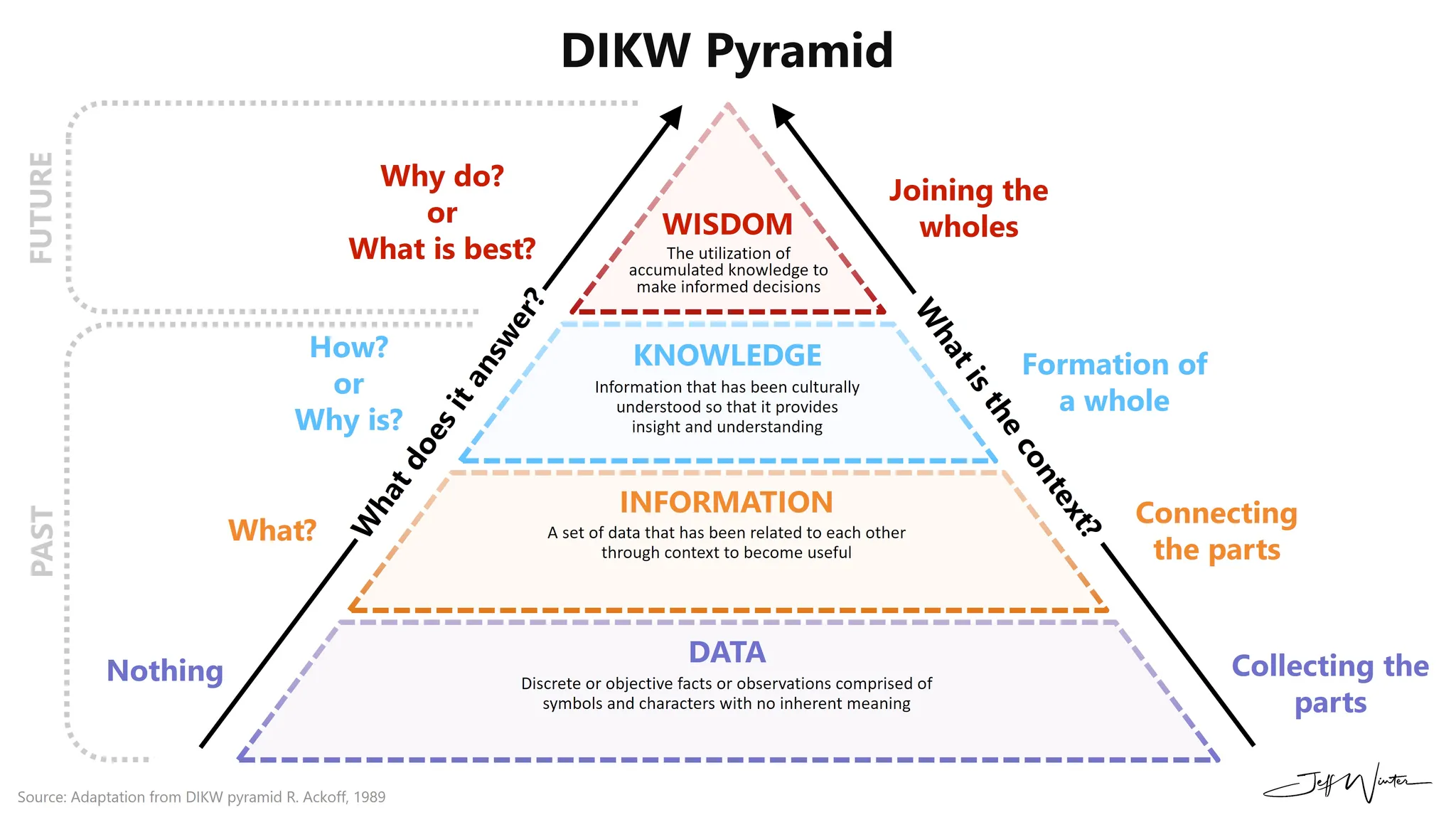tl;dr
We built an append-only database system for continual learning. It beats rigid schemas and LLM limits, letting us turn data into knowledge and wisdom without losing anything.
Our main goal is to build a system that enables continual learning (CL). We want to move beyond basic data collection to create meaningful information and insight, with the potential to reach wisdom (following the DIKW pyramid).

The problem with traditional approaches
Current methods face significant challenges:
- Database schemas are too rigid. When new information types emerge, they require complex migrations. You can't easily evolve the structure as your understanding grows.
- Large Language Models (LLMs) face catastrophic forgetting (CF) when fine-tuned. While in-context learning (ICL) avoids this issue, it doesn't scale well. As you add more examples, prompt sizes grow, exceeding token limits and reducing performance.
Our solution
We've designed a system that overcomes these limitations. Here's how it works:
- Never forgets: Using an append-only TimescaleDB hypertable (observation_log), we maintain complete historical data. Past observations remain unchanged, preventing CF at the data level.
- Adapts without breaking: The flexible JSONB payload lets observations evolve naturally. When the LLM identifies a new pattern (like "Vibe Coding"), it simply adds a new observation with the coined_terms field. No schema migration needed.
- Scales over time: TimescaleDB handles large time-series datasets efficiently. Continuous aggregates (like content_trends, entity_trends) pre-compute trends, helping the LLM detect patterns without repeatedly querying the entire log.
- Generates insights: The system follows a simple loop:
- LLM observes raw data
- Queries aggregates to find patterns (information)
- Synthesizes patterns into coined terms (insight/knowledge)
- Writes new observations
How it maps to the DIKW pyramid
Data: raw observations
This is your base layer - raw facts and symbols. In our system, this includes:
- Raw ingested content
- Basic metadata in the payload
- Initial source identifiers
{
"content": "Devs are using AI to generate code without writing it themselves",
"source": {
"source_type": "discord",
"source_identifier": "#indie-devs",
"ingestion_timestamp": "2025-03-10T12:00:00Z"
},
"tags": ["software", "ai"]
}
Information: structured & contextualized data
Here, we organize and contextualize raw data. The LLM extracts and stores:
- Identified entities
- Relations between entities
- Outputs from TimescaleDB continuous aggregates
{
"entities": [
{"name": "AI", "type": "technology"},
{"name": "devs", "type": "group"}
],
"relations": [
{"from": "devs", "to": "AI", "type": "uses"}
]
}
Knowledge: synthesized patterns & understanding
This level involves understanding patterns. In our system, this appears in the coined_terms array:
{
"coined_terms": [
{
"name": "Vibe Coding",
"type": "trend",
"description": "Intuitive coding via AI without manual coding"
}
]
}
Wisdom: applied knowledge & judgment
This is the highest level, answering "why" questions. While our current schema doesn't explicitly store wisdom, it emerges from:
- Long-term evolution of coined_terms
- Analysis of trends in coined_term_trends
- Strategic decision-making based on accumulated knowledge
